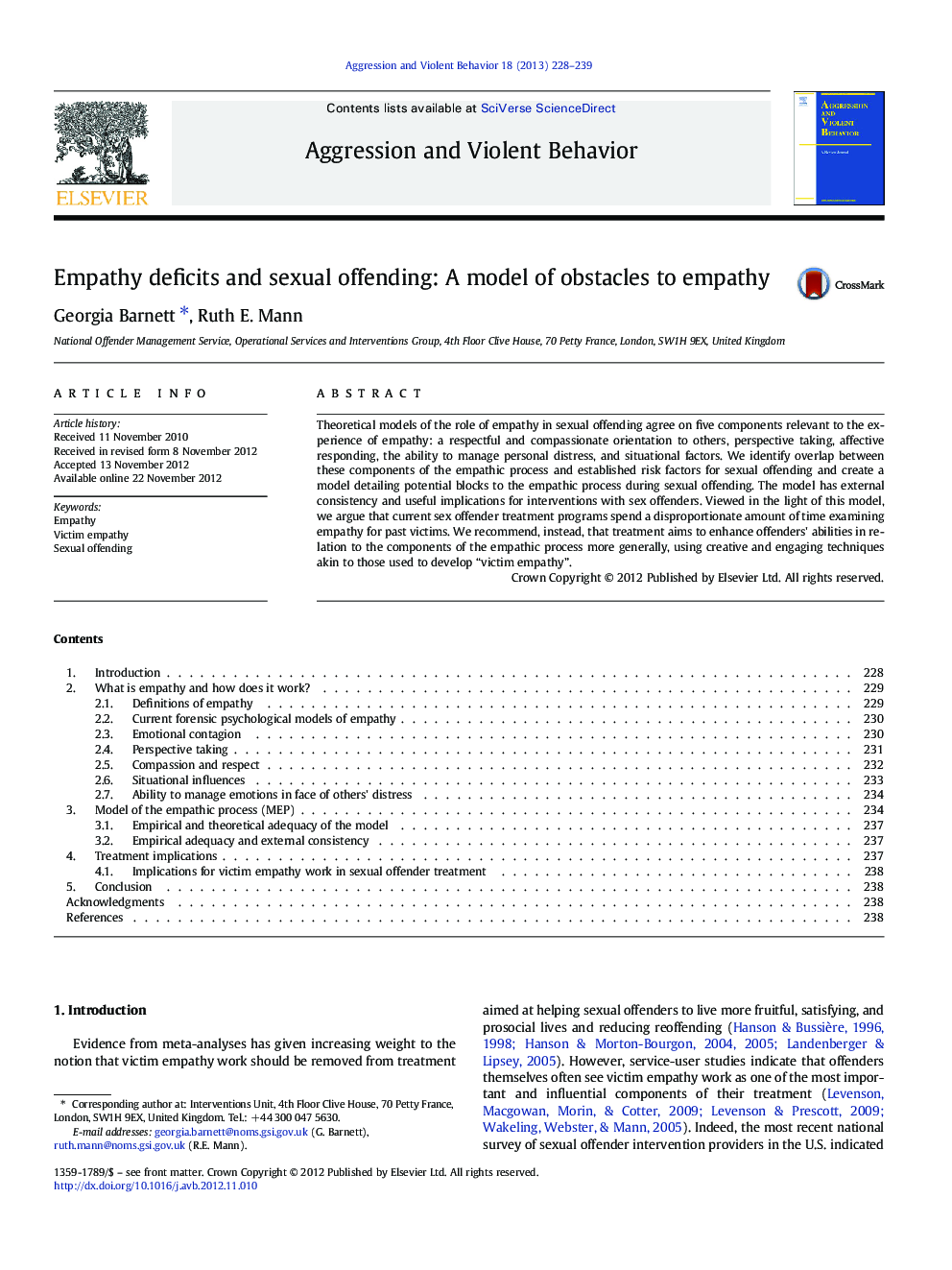| Article ID | Journal | Published Year | Pages | File Type |
|---|---|---|---|---|
| 94736 | Aggression and Violent Behavior | 2013 | 12 Pages |
Theoretical models of the role of empathy in sexual offending agree on five components relevant to the experience of empathy: a respectful and compassionate orientation to others, perspective taking, affective responding, the ability to manage personal distress, and situational factors. We identify overlap between these components of the empathic process and established risk factors for sexual offending and create a model detailing potential blocks to the empathic process during sexual offending. The model has external consistency and useful implications for interventions with sex offenders. Viewed in the light of this model, we argue that current sex offender treatment programs spend a disproportionate amount of time examining empathy for past victims. We recommend, instead, that treatment aims to enhance offenders' abilities in relation to the components of the empathic process more generally, using creative and engaging techniques akin to those used to develop “victim empathy”.
► Providers may consider devoting less time to victim empathy work in treatment. ► Deficits leading to lack of empathy at the time of the offense become the targets. ► Tailor treatment to an individual's blocks to empathy ► Deliver empathy work in a way that is creative and engaging ► Empathy work should respects individuals' rights and dignity.
